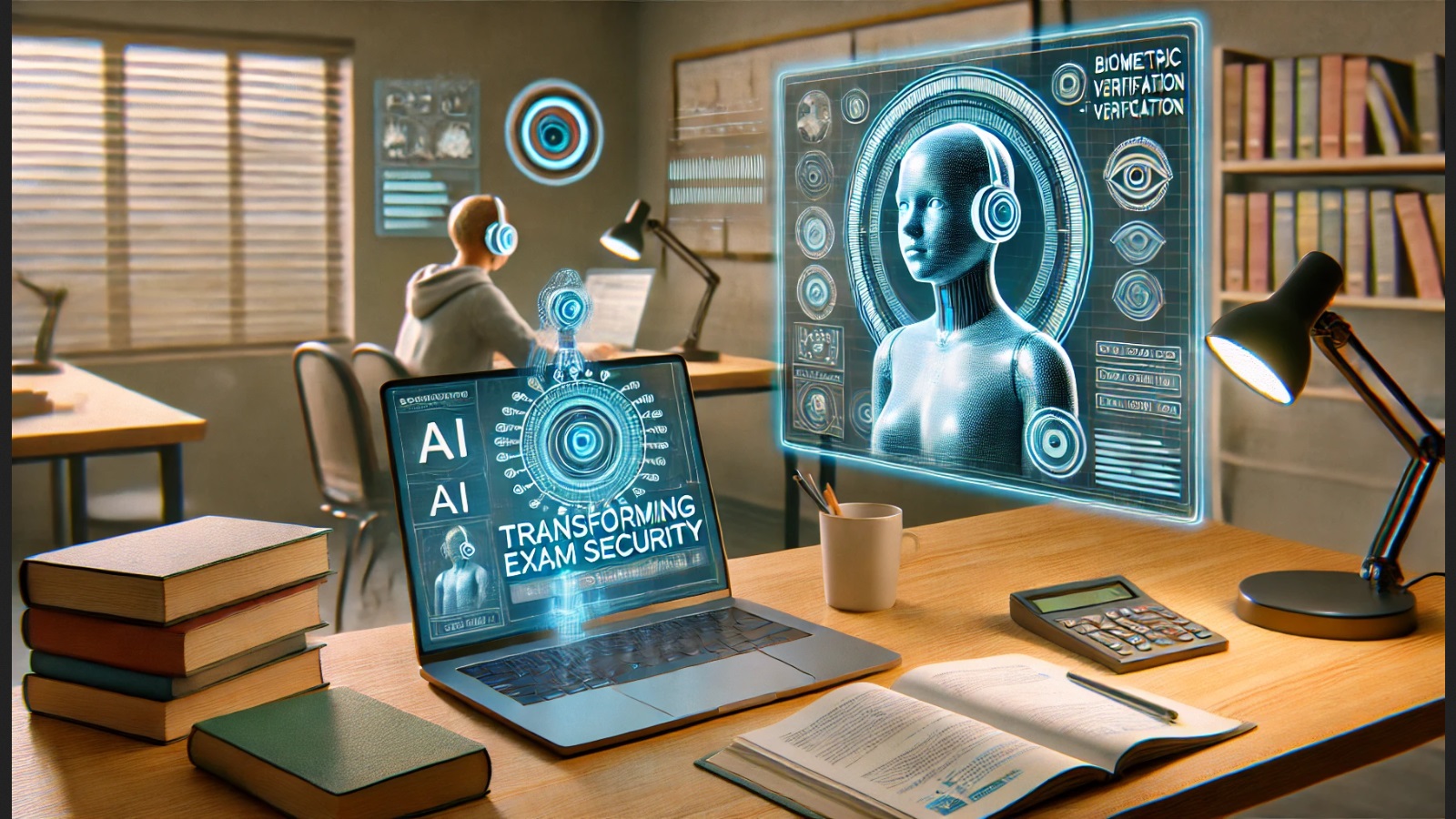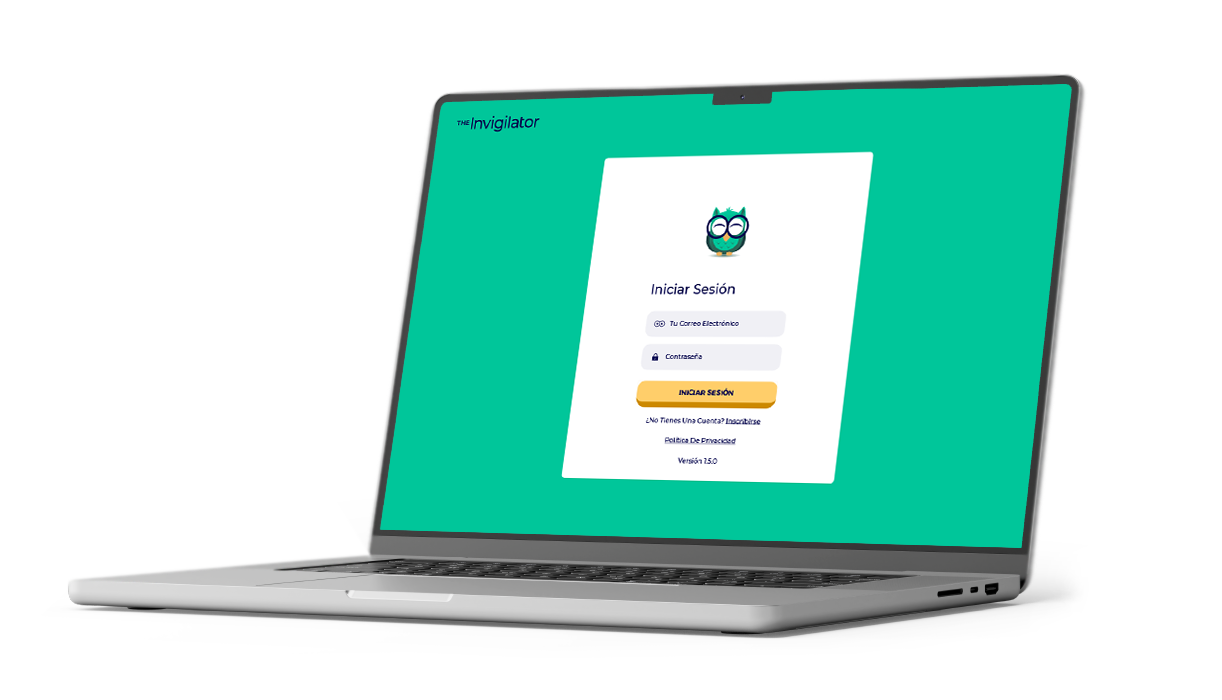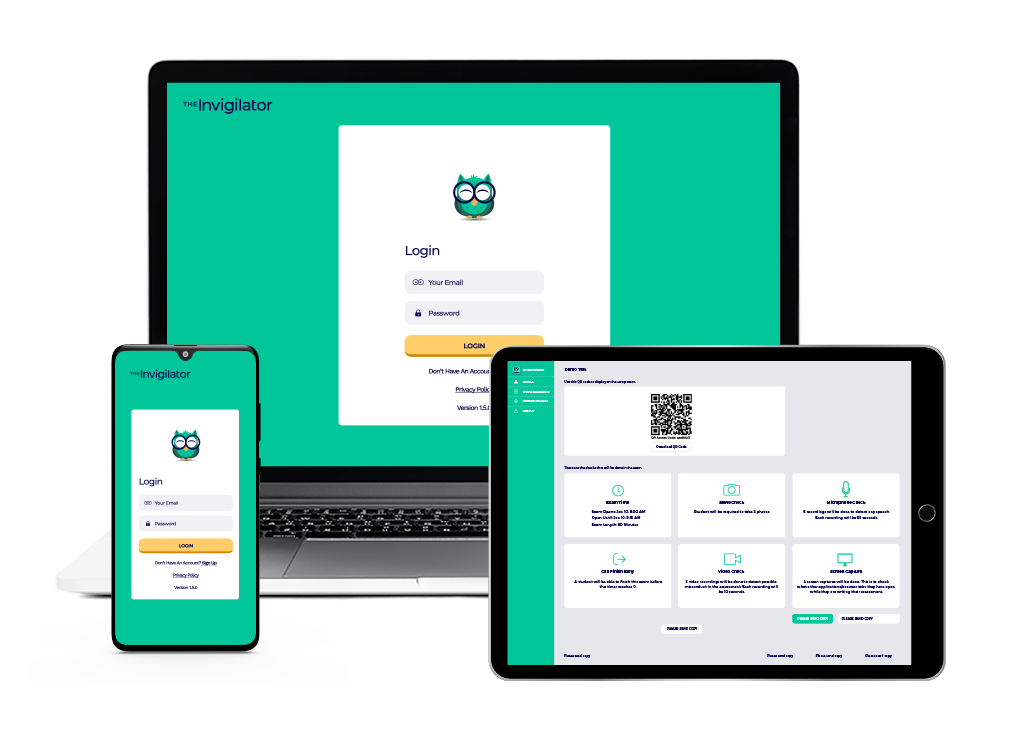How The Invigilator App Safeguards Student Privacy in Assessments
As online assessments become the norm, ensuring academic integrity while protecting student privacy is a growing in priority. Tools like The Invigilator App address this need by combining cutting-edge technology with a focus on security.
Read a quick overview of the app’s robust security features and how The Invigilator safeguards privacy during assessments.
Ensuring Secure Identity Verification
The Invigilator App employs advanced facial recognition to authenticate students during assessments. When students register, the app creates a “master photo” profile based on their university records. During exams, the app randomly prompts students to take selfies, which are compared against the master photo using AI algorithms.
This process ensures that only the registered student completes the exam while minimising the risk of impersonation. These selfies are encrypted and stored securely, maintaining student privacy.
Monitoring With Minimal Intrusion
One of the standout features of The Invigilator is its ability to balance monitoring with respect for student privacy. The app uses audio and video recording to detect potential irregularities, such as conversations or unauthorised individuals in the room.
Unlike traditional proctoring tools that require continuous monitoring, The Invigilator captures short recordings at random intervals. This targeted approach reduces data collection, ensuring students don’t feel excessively surveilled while maintaining the integrity of the assessment.
Protecting Digital Workspaces
Screen capture technology is another key feature of the app. During PC-based assessments, the app takes random snapshots of the student’s screen to detect unauthorised applications, browser tabs, or resources.
These images are processed by AI to flag any suspicious activity, such as accessing study materials or communication platforms. All captured data is encrypted and stored securely, reinforcing trust between students and educators.
Using GPS to Verify Locations
The app’s GPS tracking capability ensures that students complete assessments in approved locations. For instance, if two students are detected in close proximity during an exam, the system flags their submissions for review.
While this feature enhances academic integrity, it also respects privacy by avoiding constant location tracking. GPS data is used exclusively during assessment sessions, ensuring it remains context-specific and limited in scope.
Encryption and Compliance
Data security is a fundamental aspect of The Invigilator App’s design. All student data, photos, recordings and location information is encrypted and stored in compliance with the Protection of Personal Information Act (POPIA) in South Africa. This ensures that educational institutions meet legal privacy requirements while using the app.
Furthermore, access to sensitive data is restricted to authorised personnel, such as educators and administrators, who need it to review flagged assessments.
Building Trust Through Transparency
Transparency is essential when implementing any monitoring tool. The Invigilator App prioritises clear communication with students, outlining how and why data is collected. By doing so, the app builds trust and fosters a sense of security among its users.
Learn about our innovative privacy features in online assignments now.
FAQs and Answers
- How does The Invigilator App verify student identity securely?
The app uses facial recognition to match student selfies against a university-verified master photo. Images are encrypted and stored securely. - Is student privacy respected during monitoring?
Yes. Instead of constant surveillance, The Invigilator uses randomised short audio and video clips to detect irregularities while minimising intrusion. - What data does The Invigilator collect during an exam?
The app may collect encrypted selfies, brief audio/video clips, screen captures, and GPS data, all strictly during assessment periods only. - How does screen monitoring work in PC-based assessments?
The app takes random screen snapshots during the exam, checking for unauthorised browser tabs or applications, with all images encrypted for security. - Is GPS tracking always active in the app?
No. GPS tracking is only used during the exam session to verify that students are in approved locations and to detect proximity between candidates. - Is The Invigilator App compliant with data protection laws?
Yes. It complies with South Africa’s POPIA, encrypting all student data and restricting access to authorised institutional personnel only. - Who can access the data collected by the app?
Only designated educators and administrators responsible for reviewing assessments can access flagged content or sensitive student data. - How does The Invigilator build trust with students?
The app is transparent about data use and communicates clearly what is collected and why, helping foster confidence and trust among users.









